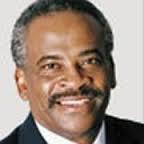
Ten years ago, as we prepared to celebrate the 40th anniversary of the march, the editors of what was then Black Issues in Higher Education published a collection of writing by authors assessing how much progress has been made in the arena of voting rights and justice. The magazine is now Diverse: Issues In Higher Education, published by our parent company, Cox, Matthews & Associates. As we prepare for the 50th anniversary, once again we remind you of this important book:
The Unfinished Agenda of the Selma-Montgomery Voting Rights March, edited by William E. Cox, $13.24 (List Price: $24.95), Wiley, February 2005, ISBN: 9780471710370, pp. 240.
The editors wrote:
In the turbulent years of the Civil Rights Movement, no single event had greater impact than the 1965 march from Selma to Montgomery, Alabama. Earlier that year, Dr. Martin Luther King had launched a major campaign to register black voters in Alabama. What began as a grassroots protest against discrimination, delay, and intimidation at the polls unleashed a shock wave of violent backlash and bloodshed. In the face of armed opposition, thousands more joined the Selma protesters. By the time they reached the state capital on March 25, more that 25,000 marchers—both black and white—had peacefully made their voices heard in Congress. Out of this unprecedented show of unity and determination emerged the most significant civil rights landmark of our time: the Voting Rights Act of 1965.
As the fortieth anniversary of the extraordinary achievement draws near, it is clear that the voting rights struggle continues for many Americans—particularly people of color. Despite the sacrifices made by so many men, women, and children in Selma, this generation questions whether its votes matter. Do dramatic gains in numbers of women and blacks among elected officials masks growing underrepresentation? What electoral strategies are necessary now to reduce the inequality of millions?
The editors of Black Issues in Higher Education asked leading African American scholars and commentators to search for answers. The Unfinished Agenda of the Selma-Montgomery Voting Rights March is a thought-provoking collection of essays that takes an incisive look at the events of 1965, the milestones reached, and the unresolved issues and challenges that remain today.




















